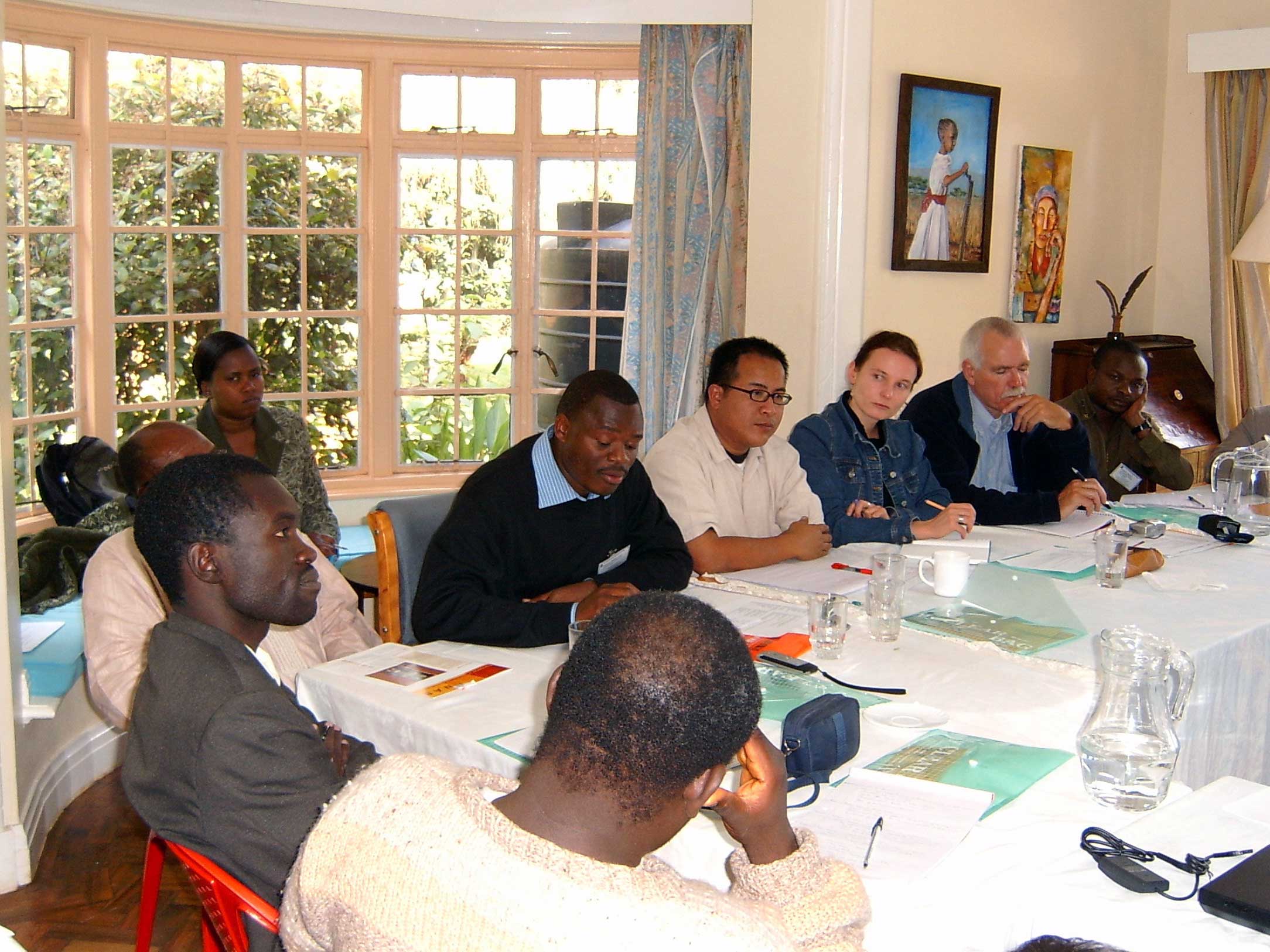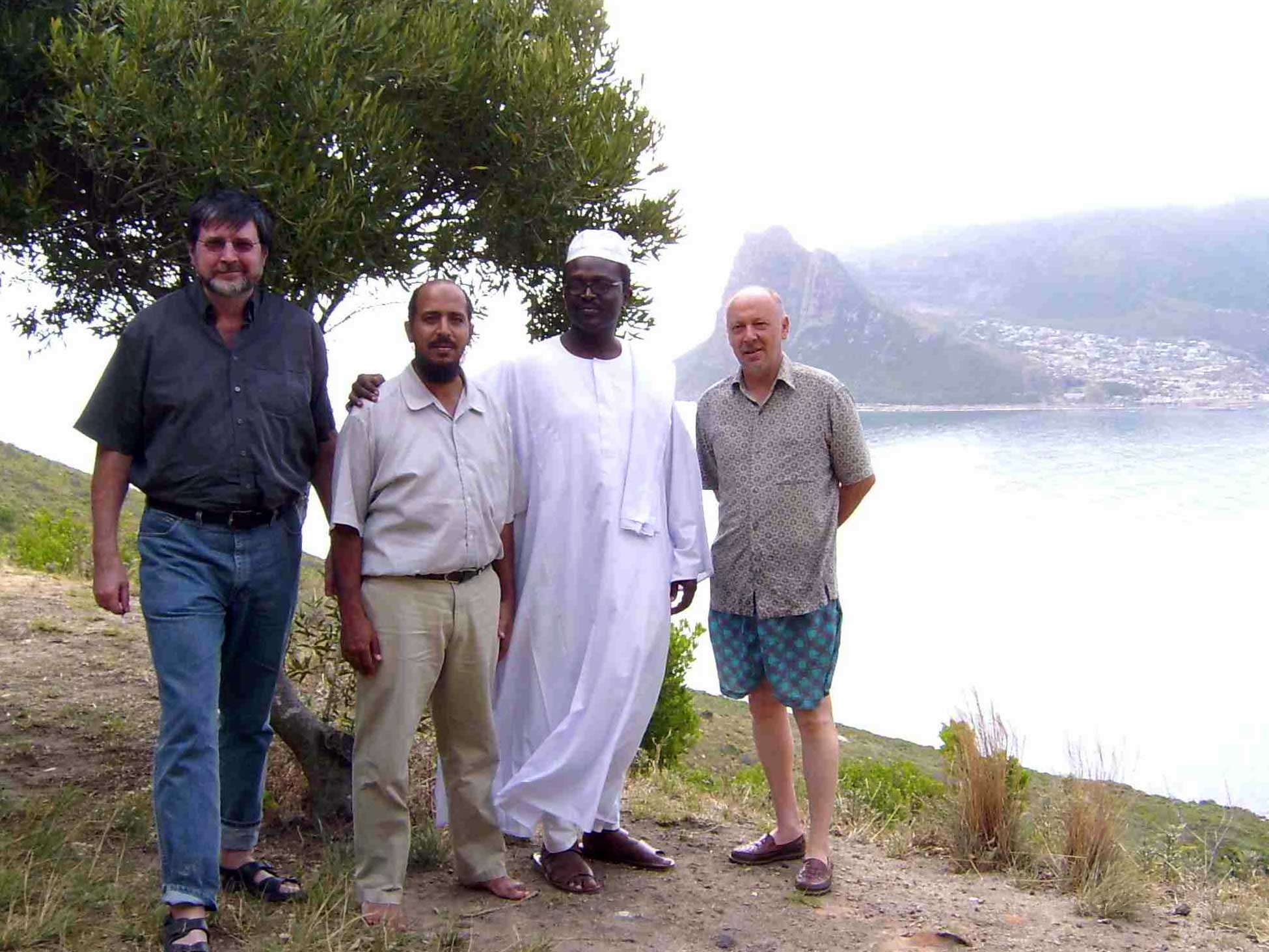Workshops in Africa
Sharia in sub-saharan Africa: The caravan keeps moving
Workshops on Sharia-debates and their perception by Christians and Muslims in selected African countries (Limuru, Kenya on July 16th – 19th 2004 / Cape Town, South Africa on February 10th – 14th February 2005)
These two workshops are the offspring of a joint research project on the current Sharia-debate in Nigeria organised by the Universities of Jos, Nigeria, and Bayreuth in 2002 / 2004. Project and workshops have been funded by Volkswagen Foundation. At an early stage of the research project it became obvious that the Sharia-debate in Nigeria is not a single and locally restricted phenomenon. In many other African countries with a Muslim population heated public debates on certain aspects of Islamic law and / or the relationship of Islam or religion in general and the state are nowadays an important part of daily political life.
 The basic idea of the workshop in Limuru was to develop new theoretical basis and research methods to deal with this current phenomenon in a series of African countries. To reach this objective it was first of all necessary to get a general idea of these recent developments. Thus the organisers, John Chesworth, St. Paul’s United Theological College, Limuru, and Franz Kogelmann, University of Bayreuth, invited predominantly junior scholars – Muslims and Christians alike – from Austria, Germany, Kenya, the Netherlands, Nigeria, South Africa, Sudan, Tanzania, and the USA. Keeping in mind that debates on Islamic law are not limited to sub-saharan countries in Africa the organisers gained over experts from Egypt, Iran and Malaysia to attend the workshop. Due to the multidisciplinary and international background of the participants fruitful discussions soon took part and first effects of cross fertilisation appeared. No only with regard to the opportunity for the junior scholars to establish new academic networks (south-south and north-south) the workshop in Limuru was also successful in offering first steps to cut across the existing academic divides. One of the most important outcomes of the workshop was the insight that the quality of our understanding of the current Sharia-debates in sub-saharan Africa and their side-effects on society is highly unsatisfactory. Although there is some scholarly literature on this topic, its coverage in patchy, it tends to be mono-disciplinary, it is often uninformed by history, it is rarely comparative as between countries, and – a serious problem from African points of view – it is mostly done by foreigners whose approach and perspective is different from African Muslims, and also from African Christians.
The basic idea of the workshop in Limuru was to develop new theoretical basis and research methods to deal with this current phenomenon in a series of African countries. To reach this objective it was first of all necessary to get a general idea of these recent developments. Thus the organisers, John Chesworth, St. Paul’s United Theological College, Limuru, and Franz Kogelmann, University of Bayreuth, invited predominantly junior scholars – Muslims and Christians alike – from Austria, Germany, Kenya, the Netherlands, Nigeria, South Africa, Sudan, Tanzania, and the USA. Keeping in mind that debates on Islamic law are not limited to sub-saharan countries in Africa the organisers gained over experts from Egypt, Iran and Malaysia to attend the workshop. Due to the multidisciplinary and international background of the participants fruitful discussions soon took part and first effects of cross fertilisation appeared. No only with regard to the opportunity for the junior scholars to establish new academic networks (south-south and north-south) the workshop in Limuru was also successful in offering first steps to cut across the existing academic divides. One of the most important outcomes of the workshop was the insight that the quality of our understanding of the current Sharia-debates in sub-saharan Africa and their side-effects on society is highly unsatisfactory. Although there is some scholarly literature on this topic, its coverage in patchy, it tends to be mono-disciplinary, it is often uninformed by history, it is rarely comparative as between countries, and – a serious problem from African points of view – it is mostly done by foreigners whose approach and perspective is different from African Muslims, and also from African Christians.
 The second workshop in Cape Town was different in character. Aware of the above mentioned lacks in scholarly work on the current sharia-debates, the organisers Shamil Jeppie, University of Cape Town, and Franz Kogelmann, University of Bayreuth, brought together a relatively small multidisciplinary group of scholars to develop new ideas and approaches to overcome this poor state of research on this topic. Days of discussion resulted in a draft for a future research project. The aims of the planned project will address a whole set of problems: Building on networks established in previous projects, a group of predominantly African junior scholars will join with several established Western scholars to form a Project Team that is both international and multidisciplinary, involving religious studies, Islamic studies, jurisprudence, history, and social anthropology. The Project Team will help to define, and the project will sponsor, scholarly research and writing aimed at filling up the gaps in our knowledge about the history and the current political, economic, and social dynamics of “Sharia debates and their perception by Muslims and Christians in selected African countries”. The focus will be Kenya, Nigeria, South African, Sudan, and Tanzania. Multidisciplinarity and comparativity as between countries will be significant components of the research. In order to build up new and to enhance existing networks co-operation among researchers will be encouraged. Comparativity on the level of entire sub-saharan Africa is only the first step. The project will also incite comparativity on the transcontinental level. Perhaps most importantly, the research will be done by young African scholars, including both Muslims and Christians, who will be closely supervised and assisted by members of the Project Team with a view to their proper training, their exposure to current ideas, methodologies, and milieux, and the enhancement of their formal academic qualifications. The ultimate goal will be the building of networks among these young African scholars as the academic leadership of the future in their respective countries and the improvement of African-European academic networks.
The second workshop in Cape Town was different in character. Aware of the above mentioned lacks in scholarly work on the current sharia-debates, the organisers Shamil Jeppie, University of Cape Town, and Franz Kogelmann, University of Bayreuth, brought together a relatively small multidisciplinary group of scholars to develop new ideas and approaches to overcome this poor state of research on this topic. Days of discussion resulted in a draft for a future research project. The aims of the planned project will address a whole set of problems: Building on networks established in previous projects, a group of predominantly African junior scholars will join with several established Western scholars to form a Project Team that is both international and multidisciplinary, involving religious studies, Islamic studies, jurisprudence, history, and social anthropology. The Project Team will help to define, and the project will sponsor, scholarly research and writing aimed at filling up the gaps in our knowledge about the history and the current political, economic, and social dynamics of “Sharia debates and their perception by Muslims and Christians in selected African countries”. The focus will be Kenya, Nigeria, South African, Sudan, and Tanzania. Multidisciplinarity and comparativity as between countries will be significant components of the research. In order to build up new and to enhance existing networks co-operation among researchers will be encouraged. Comparativity on the level of entire sub-saharan Africa is only the first step. The project will also incite comparativity on the transcontinental level. Perhaps most importantly, the research will be done by young African scholars, including both Muslims and Christians, who will be closely supervised and assisted by members of the Project Team with a view to their proper training, their exposure to current ideas, methodologies, and milieux, and the enhancement of their formal academic qualifications. The ultimate goal will be the building of networks among these young African scholars as the academic leadership of the future in their respective countries and the improvement of African-European academic networks.
By Franz Kogelmann
First published in NAB Newsletter of African Studies at Bayreuth University, Vol. IV/1 2005, p. 14-15,
http://www.old.uni-bayreuth.de/sfbs/sfb-fk560/index-publikationen.html